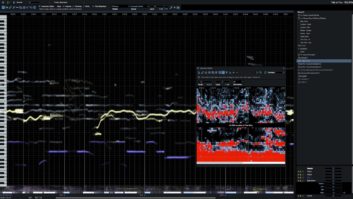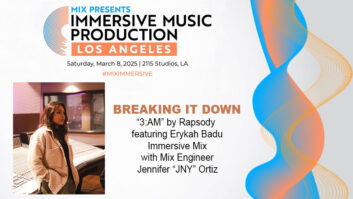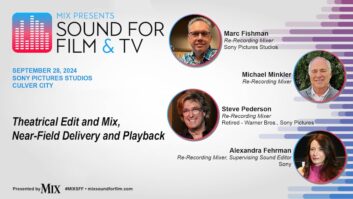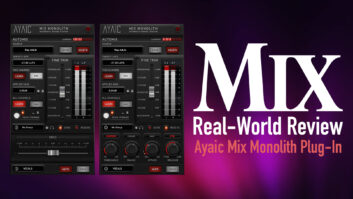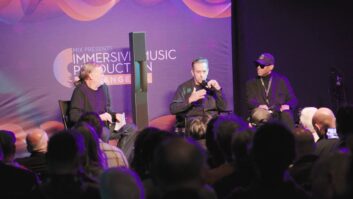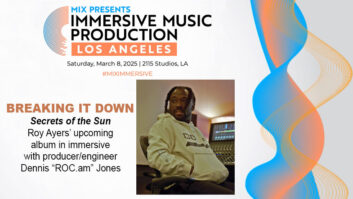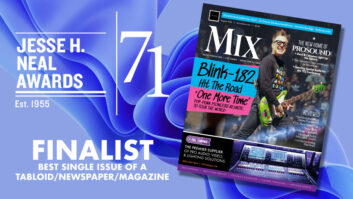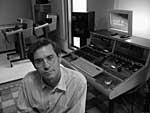
North Carolina-based mastering talent Jeff Carroll began his career at American Media International (Burlington, NC), fine-tuning his listening skills while working with co-workers who would mentor him in the field. Says Carroll, “[Working at AMI] was an excellent, more technical knowledge base to use as a launching pad for the more creative mastering I do now. Most of the work there was performing transfers to make production masters, with heavy emphasis on maintaining absolute audiophile quality. With customers like Sheffield Labs, Telarc and spillovers from major labels, we all had reputations to uphold.” Calling on his previous experience as a vocalist, guitarist and songwriter, he maintains that, “musical instinct and sensitivity is a must for this job.”
Now working out of his own home-based studio, Bluefield Mastering (www.bluefieldmastering.com), in Raleigh, North Carolina, he has most recently worked to restore blues, folk, gospel, jazz, rock, bluegrass and old-time recordings both privately and in association with UNC–Chapel Hill’s Southern Folklife Collection, and mastered albums for an impressive list of artists, including the latest by Juno Award-winning songwriter Ron Sexsmith and producer/vocalist Don Kerr, Destination Unknown (2005); Ana Egge (Out Past the Lights), The Warren Brothers’ Well-Deserved Obscurity, among others.
What excites you about the mastering process? What makes a record great and what do you do to bring out that magic?
There is nothing more exciting than being a key factor in the magical transformation, when the vision that becomes a reality is often better than anticipated. I am thrilled to learn new things and to discover and develop techniques that I know will be useful again sometime in the future.
Successfully engaging a listener has so much to do with musical and emotional content, regardless of genre. Hopefully, this concern is sustained throughout the record making process, from the writing stage all the way to mastering. A complimentary marriage of lyrics, music and recording is the most powerful package. My job is to enhance and preserve all crucial elements, and to do what is appropriate and necessary to further enable the connection between song and listener. The best records begin as songs of substance that are played by skilled players on quality instruments. They are arranged, recorded and mixed so that instruments have both musical and sonic space, and then mastered with the same respect, care and attention that went into writing the song. So, in this sense, everyone involved makes an important contribution toward a common goal.
Describe the layout of the Bluefield Mastering.
The layout is a live-end /dead-end configuration with custom treatments by AVL. When the room was initially set up, I immediately loved the sound, but had my tech do a TEF analysis for his stamp of approval. The studio is a dedicated space built into my home. The living/working environment is an ideal arrangement because the hours are quite long and it affords me more flexibility in my schedule.
Tell me about a couple of bands or projects that you feel particularly proud of that have recently come through your studio.
Ron Sexsmith and Don Kerr’s new record, Destination Unknown (Emergent/V2). It’s no secret to those who know me that Ron is one of my favorite artists of all time, so it’s a dream come true to be asked to master this album. Don is an extremely gifted producer and a musician’s musician. Both of these guys are exploding with natural ability.
Out Past the Lights (Parkinsong/Rykodisc), the latest release by Ana Egge. The decision to make pre-production demos of guitar and lead vocal the core tracks of each song was a bit of a technical compromise, yet brilliant in that it’s a major contributing factor to the record’s genuine, deep emotional intensity. And, last year, I mastered a record for The Warren Brothers titled Well-Deserved Obscurity (429/SLG). Many fans are saying it’s their favorite Warren Brothers album—including me!
You’ve been a part of audio restoration projects for a while now. What kinds of music are you helping to preserve? What kinds of recordings are salvageable, and which aren’t according to your experience?
As the work at AMI increasingly became non-music media, my interest in the facility waned and I took a job doing audio preservation and restoration at the Southern Folklife Collection at UNC–Chapel Hill. I was there for three years, at which time I also started Bluefield Mastering. A wealth of blues, folk, gospel, jazz, rock, bluegrass and old-time recordings are housed in the collection, many being rare one-of-a-kind recordings at risk of becoming non-playable. Many are on dead formats and have been ravaged by time spent in less-than-ideal storage environments. It’s common to find dirty or moldy media, delaminating or warped lacquers, breakdowns in chemical composites, chipped 78s, et cetera. Most are salvageable, but require proper source equipment, time and patience to prepare. It’s strange, but occasionally rare, old recordings still find their way to me, usually by word of mouth.
A local engineer who is aware of my background recently referred a client to me. Members of the original Red Clay Ramblers wanted to re-release an album originally recorded in 1979. They were quite frustrated after having paid two better-known mastering facilities for poor quality transfers of the original mixdown reels. They described the transfers as sounding “extremely warbled” and forwarded me copies to hear. As it turned out, while both facilities had baked the tapes to combat the sticky-shed problem, neither had bothered to decode the dbx Type I noise reduction. The group was thrilled with my results, I made archive copies and mastered it for release on CD. This title, Meeting in the Air–Songs of the Carter Family, is now enjoying new life.
You have a Manley custom console. What prompted you to choose such a device, and what’s custom about its set up? What is its impact on the overall sound coming out of Bluefield?
Monitoring is everything in mastering, and you can’t make quality judgements based on a lie. Establishing an absolute “truth” is imperative, and for me that truth starts with neutrality. At this stage of a project, I am making changes that are often fractions of a decibel. I wanted a console that was a totally passive and balanced design, because I didn’t want to “hear” it. It’s actually a fairly simple unit, and the transparency is a key part of my fresh canvas from which I base all sonic decisions.
Is there anything else that you think Mix readers would like to know that I may have missed?
I feel fortunate to have worked on so many records that I love and will never grow tired of. And I look forward to helping more people create the kind of records they want to make.
To find out more about Bluefield Mastering and to contact Jeff Carroll, please call 877/847-2583 (toll free) or 919/859-0102. To nominate your favorite regional engineer for a profile in “Generation Mix,” please e-mail blingle@primediabusiness.com.

